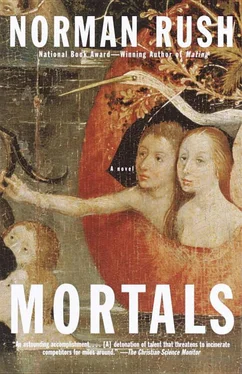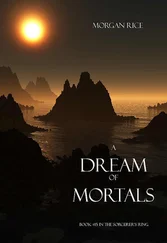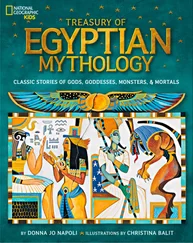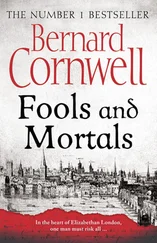I’m learning to sleep anywhere, he thought, and fell asleep.
His first thought, when he awakened, was that he must be in a cave, which was not possible, or rather not compatible with the geography of that part of the Kalahari, as he understood it, which was poorly. Only the Tsodilo Hills, where the Bushman paintings were, were substantial enough to have caves in them, and they were too far away, impossible to reach in anything like the time he had been traveling asleep, which was the best way to travel, in a berth on a train or in first class on a plane where you had leg-room and seatbacks went further back than the seats in coach.
He was alone. He was looking up at a ceiling, a slanting-to-the-rear ceiling, or rock. It was low where he was and ascended higher toward the back, higher than, lying there, he could determine. His head was elevated. Whoever had placed him on the tarpaulin had stuck Strange News under his head, like a good person. A candle was burning back in the more open part of the definite cave he was in. It was Houdini who had slept with a special pillow full of his mother’s letters every night. He had been interested in Houdini, as a boy. How Bess, Houdini’s wife, had felt about the mother-pillow was a question. There were questions no one could answer. There were going to be permanent secrets. But in his case he would know soon why he was being taken care of in this cave. The cave had a sour, organic smell.
He sat up. He could touch the rock surface above him, so he did.
Sounds were coming to him from the narrow mouth of the cave. Whatever was going on was going on there.
He was hurting everywhere. He was delighted not to be dead. Waking up, he had thought for a second he might be dead, dead but also alive, alive in the way you would be in all the religions, with their various hells and paradises and so on.
He turned himself around and began to crawl toward the opening of the cave, and he had the thought that in fact he might be existing in some kind of illusion, the illusion that everything was real around him, that this cave was real, but that in fact he was dead, and crawling toward the dim light at the mouth of the cave was an illusion that was a kindness to him.
And as he crawled the fifteen or so feet to the dim light and toward the discussion he could hear going on he hoped to God this was real because there were the stories of people dying and going down a tunnel toward a source of light and meeting their relatives and a neon version of Jesus at the end and then a voice saying your work is not done and then snapping back like a rubber band to the operating room.
Ray thought he would be willing to die if it was going to be pitch black, hello zero, diving through the zero like a clown through a burning hoop and then nothing. He hoped to God the atheists were right. Because if there was an afterlife it would be institutional because somebody would have to run it and he couldn’t go through that again. And the only worse thing would be reincarnation and back to the ocean of human institutions again.
Ray crawled and rested and crawled on. His knees were in hell. He realized that he wouldn’t mind meeting his brother, now, in the death place. They would have new things to say to one another.
He emerged.
“Here I am,” he shouted. He wanted to see if that would have some effect. Because if he was in a death drama, a comic opera of crawling toward the light and toward relatives, nothing he could say would have any effect on it because it would be a script, an ordained thing, like Orientation Day in college.
His voice was better, he noted.
He wanted, by now urgently, to see people he knew were alive, still, as of the time before he went into sleep.
No one was answering. The opening into the cave was raised above the ground by six feet or so. It would have required effort to get him ensconced in that cave. The stars were thick, as usual, in the sky. But of course the managers of the afterlife could arrange whatever decorations they wanted.
“Stay where you are,” Morel shouted to him. A torchbeam swung up to find him.
“Help me down. Please!” Ray said. He could have shouted, but he wanted to preserve his voice, for what purpose beyond talking to Kerekang, he was unsure, but he felt strongly that it was important to be able to shout if the need arose.
He cleared his throat. “Testing, testing,” he said softly. He was better. He wondered how long he had slept. He hadn’t been able to find his wristwatch before they’d left Ngami Bird Lodge. His guess was that it had gone from some koevoet to some witdoek. He didn’t care where it was. Iris was in favor of cheap watches. His watch hadn’t been cheap but it hadn’t been expensive either. He was going to stay with even cheaper watches in the future.
The cave mouth was set back from a ledge. He sat on the ledge and rubbed his throbbing knee.
Morel was being very canny with the torch, using it for short intervals and then turning it off. They were being hypercautious about signs of their presence being picked up. But he didn’t know if they were being extreme or not, really. They were afraid of helicopters. He didn’t think they had to worry about helicopters being used for spotting. They might be used for extraction, getting whatever was left of koevoet out and away before too much attention got fixed on the exercise and especially on where the villains had come from and who had organized them to come and who might be paying them. They were mercenaries. They were supposed to disappear.
Morel was reaching up to help him down. Ray knew he was better because small things were bothering him again, as they normally would. It was bothering him that they were being so chary with the torches. He wanted to light up the black rocky bulk rising up behind him. He wanted to know where he was, physically. He needed the free use of a torch.
“I can make it okay,” he said to Morel, and pushed himself off the ledge.
He landed and collapsed but got up right away and began dusting himself off. He could smell food, something frying or roasting. He was salivating so copiously it was an impediment to telling Morel he wanted the torch for a minute.
“Can you give me that?” he said.
“Why?”
“I just need it for a second.”
“Here it is, man,” Morel said, surprising him.
Ray was grateful. He would be brief in his investigation. He could see where they were immediately. This was a monadnock, a pile of boulders, some of them huge and all leaning against each other like a tumulus out in otherwise flat country. It wasn’t part of a chain of hills it was just a solitary upthrust of reddish granite. The red rock wilderness shall be my dwelling place was something from the Bible and the only person in the vicinity he could ask about the Bible was his wife’s boyfriend.
Morel was examining Ray’s wrists and his neck. There were new bites, little ones, not so many of them, on his wrists and hands. Ray wanted to know how badly his face was bitten but didn’t want to ask Morel.
There was a small fire burning out among the debris boulders on the monadnock. He wanted to go to it. The food smell was coming from there. He was ravenous.
There should be no light if that was the object, really no light at all. He wanted to tell them about his father, who had been an air raid warden during the Second World War for about three or four months, and how strict he had been, Rex and he had heard about how strict he had been, with an armband and a helmet and a torch, or flashlight, rather, going around, saying to put this or that light out. And there had been black blinds on their windows. His father had been handsome.
“Where is Wemberg?” he asked Morel.
Читать дальше












